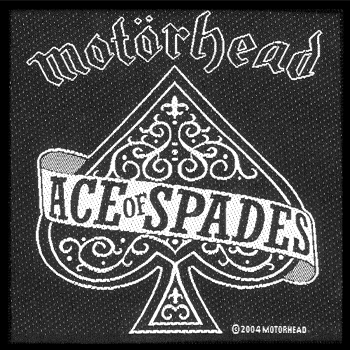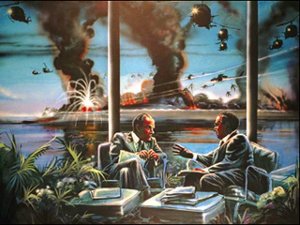It is said that the who and when of diplomatic missions tells much about the disposition of the government sending them. If that is true, then consider this.
The most important annual Trans-Pacific diplomatic (APEC) meetings are being held in Bali this week. John Key and Tim Groser are there, once again pushing their trade-first (only?) agenda in the main sessions and back rooms.
Meanwhile, Foreign Minister Murray McCully is on a mission to Antarctica.
Since Antarctica has no diplomatic agencies on its soil, it seems odd that the foreign minister is headed that way in the absence of a treaty signing or other diplomatic event. His press release states that the visit, his first, is because he is the minister responsible for New Zealand’s Antarctic Affairs and that along with his visit to Scott Base he will head to the US base at McMurdo Sound. But there is nothing diplomatic on his agenda.
Mr. McCully is not a minister for anything scientific, so he is not discharging science portfolio responsibilities by visiting one of the research stations on the continent. Perhaps, as Minister of Sports and Recreation, he is looking into possibilities along those lines, especially since he was flown down on an Air Force plane along with 117 others plus the 11 person Air Force crew.
But if he is not engaged in anything other than a tour of the realm, why is he not with other Trans-Pacific foreign ministers in Bali? Is this the contemporary equivalent of the colonial practice of assigning diplomats in disgrace to a posting in Brazzaville? Is Antarctica New Zealand’s diplomatic version of the Mosquito Coast?
MFAT and National will say that he was superfluous to requirements in Bali (not exactly in that language) because the PM and Trade Minister are there. That tells us two things.
On the international relations front it confirms that New Zealand’s foreign policy is dominated by a trade fixation (fetishism?) that has come to dominate all other aspects of New Zealand’s diplomatic endeavor. In spite of Mr. Key’s posturing at the UN with regard to UN reform, weapons non-proliferation and multilateral intervention in search for votes for a Security Council temporary seat next year, the hard fact is that New Zealand’s diplomatic ranks have been purged, one way or another, of arms control and non-proliferation specialists, climate change and human rights experts and many other senior diplomats whose primary expertise lies outside the realm of trade. They have been replaced by younger, less costly and more narrowly focused trade zealots (many riding on Groser’s coat tails) whose knowledge and experience in other diplomatic fields is comparatively thin.
This has been accompanied by out-sourcing lead responsibility for intelligence sharing and security assistance negotiations to the GCSB, SIS and NZDF, which is one of the reasons, in concert with the trade fixation, that New Zealand’s foreign relations have taken a distinctly schizophrenic look under National (trade with the East, defend with the West, even if the PRC and US are on a collision course for supremacy in the Western Pacific).
One might respond that spy agencies and armed forces should cut their own deals with foreign counterparts, since it is their business after all. But that is precisely why diplomatic intercession is required–securing the national interest is a long-term game played on many fronts that is not reducible to bureaucratic self-interest, making friends amongst foreign counterparts, or currying immediate favor. It is a fluid balancing game rather than a static one-off opportunity, which is why allowing spooks and uniforms to dictate the terms of engagement on matters of intelligence and security is less than ideal. That is particularly so when the ministers in charge of security and intelligence as well as military affairs are less than conversant with the nature of the operations they are responsible for and where there is no independent oversight of their decisions regarding the conduct of those operations.
Likewise, trade zealots need to have their single-minded obsession with neo-Ricardian prescriptions tempered by those who understand that the world is not solely dominated by trade balances and import/export quotas, tariffs, licensing and the other minutiae of cross-border economic interaction. Important as these are, they need to be considered in relation to other areas of diplomatic endeavor so that coherence, congruence and continuity in foreign affairs can be achieved and maintained. The latter is important for no other reason than it helps establish and maintain a nation’s reputation as a global actor.
New Zealand’s reputation as a global actor has transformed under National from that of an independent and autonomous honest broker into that of a wheeling, dealing “free” trading operator that hedges its bets by cozying up to the world military superpower. It remains to be seen how tenable this position will be over the long-term.
On the internal front McCully’s Antarctic junket offers proof that he is an outcast within his own party, a pariah best unseen and unheard. He has no significant allies in the Collins or Joyce factions of the National caucus and no real friends elsewhere. He has no discernible influence on foreign policy, serving more as a spokesperson and chief of ceremony. The weeks before his trip to the frozen continent he was flitting about the US and Caribbean, visiting the America’s Cup before heading to the UN for some meeting and greeting, then onto bilaterals with Caribbean counterparts. Prior to that he was at the Pacific Island Forum in the Marshall Islands, preceded by trips to Hong Kong, China and Mongolia, Melanesia and the Cook Islands and Africa and the Seychelles. He presented many gifts to a variety of dignitaries from far-off lands and wore colorful shirts as much as he did suits. He did little hard negotiating.
That is a lot of time spent abroad during times when parliament is sitting, particularly when the bulk of the trips were for more symbolic than significant purposes. Come to think of it, when was the last time he answered a question in the debating chamber? I may have missed it but he does seem conspicuous by his absence.
In effect, McCully has been given a comfy sinecure to ensure that he stays away from his own caucus and steers clear of involvement in the “real” business of foreign affairs, that being trade. This neuters him in terms of the internal politics within National as well as with regard to foreign policy making (which is now the province of Groser and his minions). This is a variation on the theme used by Labour with respect to Winston Peters, when he became a Foreign Minister not in cabinet who spent a similar amount of time as McCully does exploring the far–and nicer–reaches of the globe. Except Antarctica.
And we have paid for all of it.





